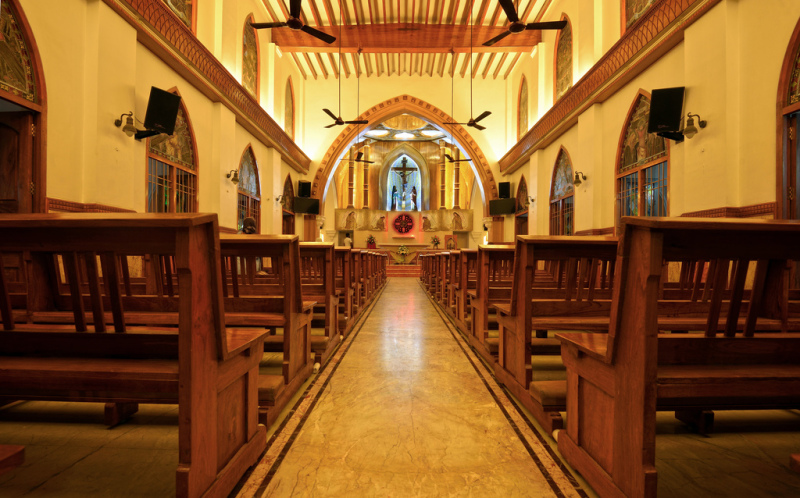Over the holidays, my husband and I viewed an epic series about the life of St. Teresa de Jesus, filmed in Spanish, though English subtitles were provided.
For eight hours, we were taken back to the 1500s in Spain. As a writer of historical novels, I’ve researched many eras. However, being immersed in an era for such a length of time brought to life many facts:
1.) Even in the best of coaches, travel comfort was about two steps above riding in a wheelbarrow. I’ll take high prices for air travel over being jostled and shaken for days.
2.) Roads? What roads? You might see a rough path but certainly nothing paved.
3.) Food was scarce. I wouldn’t enjoy knocking on rich people’s doors to beg. The series showed that some towns opposed the arrival of new religious people, since they felt they had to support them with alms.
4.) Nuns were often called upon by the nobility to offer advice, to comfort the grieving, assist new mothers, and other occasions. St. Teresa was in special demand after she became a celebrity.
5.) Medicine was dicey. St. Teresa was ill a good part of her life, and probably died from untreated uterine cancer.
6.) The sick needed to vomit in bowls. This is only one example of how modern plumbing makes modern life more sanitary.
7.) Being buried alive was a real risk. St. Teresa was almost buried alive after she didn’t respond to hot candle wax being dropped on her eyelids. Thankfully, she awoke before she was declared dead.
8.) Women’s lives have improved. In the film, St. Teresa said that most married women died either in childbirth or from exhaustion.
And yet some things never change:
1.) Everyone faces opposition. St. Teresa reformed the Carmelites, and her measures were opposed by some sisters. People don’t like change.
2.) Dreams can be dashed. St. Teresa was never allowed by the church to found a convent in Madrid.
3.) Some people poke fun at the pious. St. Teresa’s visions and religious experiences were ridiculed.
4.) Even a saint isn’t immune from revenge. St. Teresa made a powerful enemy when she angered a princess, who turned her in to the Spanish Inquisition.
5.) Celebrity is difficult. St. Teresa was mobbed in many towns she visited.
6.) A life lived in devotion to God is not necessarily easy, but such a life is always rewarding.
Your turn:
Do you write historical novels? What is your favorite era and why?
Have you researched history for nonfiction? Tell us about your work.
What do you think was the best era to live in?
What do you appreciate most about today?
The above photo is from the St. Theresa Cathedral in Chennai, India.



 Finding Your Readers’ Hot Topic
Finding Your Readers’ Hot Topic

Hi Tamela,
I’m spoiled with modern conveniences. Electricity and indoor plumbing are at the top of my list. I can’t imagine how terrible it would have been to trudge through an icy, cold night to go to the outhouse. Plus you’d have to carry a lantern, and the facilities would be freezing.
I didn’t see the series you watched, but how sad that the towns didn’t want religious people to arrive because they didn’t want to support them. It makes me think of Jesus telling his followers to shake the dust off their feet from villages that didn’t welcome them.
No, I don’t write historical novels. Why? Because the little bit of research that I’ve done leaves me feeling depressed. Life was hard, and I’d also heard that lots of women died during childbirth! Just a frightening thought! I love my indoor plumbing, electricity, and modern conveniences. I guess I’m just spoiled!
My current fictional work, though not a historical novel as such, has a backstory for which I’ve done research on the Great Plains Indians at the time of the disappearance of the bison, their main food source. Those people lived rough! Their only hope seemed to be the pagan religious rituals they observed that included physical torment (frenzied dances and piercings and dehydration) as they worked hard to appease their gods. How wonderful that Christian missionaries brought the story of salvation through Jesus to these starving and desperate people! There’s a lot of bad press about abuse that took place in some residential schools set up by the governments and church organizations to help the Native Americans, but I love to read about the benefits the church brought–and still brings–to a lost group of people.
I love history, and research is my favorite thing to do. This is silly, but sometimes I wish I could time travel just to experience it. But I would need to have some way of leaping out when things would get tough because I’m a wimp.
I like modem heating and plumbing way too much!
My favorite era is late 1800s – to early 1900s. But I definitely wouldn’t want to live there.
The series you watched sounds so wonderful!
I’ve written one historical novel, set during WW2; it was sort of an outgrowth of the work I’ve done restoring aeroplanes from that era, though it’s hardly a “nuts and bolts” treatise, or a blood and thunder epic on flying.
Instead it blends romance, Christian mysticism, and Navajo spiritual practice in what I hope is an uplifting way.
The Beta readers loved it (which made my day!), and it’s going through some tweaking now for querying.
It took a LOT of research, into the WW2 Southwest, the history of the Navajo and their beliefs, the history of the exploration of the Southwest in the 1500s, and what Belsen was like immediately it was liberated..
I’m glad to be living today. In spite of all that about which one might complain, there are far fewer threats to life and health now than there ever were in my life.
In the 50s, say, there was no ISIS, no Boko Haram, no internet pornography…but there WAS polio, and smallpox was still active. And the Soviets were itching for the opportunity to turn the US into a glassy glowing parking lot.
And Rosa Parks was still willing to sit in the back of the bus.
Yeah, I’ll take today.
I like turn of the century: great hats, long dresses, inviting homes. And yes, Tamela, some indoor plumbing and other cool things making civilization more livable.
But it is an oxymoron, the simple life becomes complicated and here we are today in mass complication and inundated with spiritual chamber pots tossed at us everyday and in every direction.
Would any of us really go back? Too hard then and hard now. I was just researching the Flu of 1918 and found that one of the biggest reasons it was so bad was that it would hit families and the servants ran off and the people were too weak to even get water to one another. Most died of dehydration.
There is no perfect time except when He comes.
I do love not having to type a manuscript on a typewriter, staying warm and cool and flushable chamber pots. (<;
I write historicals, and one thing I’ve had to combat is having a romanticized view of the past and seeing bygone eras as simpler, pastoral. Life was hard without the amenities we enjoy today such as water and electricity in our houses. Though the technology and commercialism of today has its own set of hazards, we often take for granted the blessings of the time we live in.
Amen, Sondra.
We often romanticize the Victorian era…it was great for the elite, but do we really want to go back to an acceptance of child labour, and an almost total lack of social services?
Would we be happy with women as chattel?
I think not.
I agree Andrew, Sondra. What I have found with the books that tell all the sordid history is that I forget the message and dwell on how awful it was. I don’t mind going back and letting the reader enjoy a bit of an interesting time but getting the real message of the book out. Sometimes the sordid path is part of the message and that is okay but being an extremely visual person, I can’t get the pictures out of my head. And so we write the books we want to read, right?
“We write the books we want to read.”
So true! I realized awhile ago that y writing harked back to the 40s and 50s, with a slower development of character and plot, and no particular strictures against the use of adverbs (he observed darkly).
I tried to up-tempo the writing, but I hated what I was doing. It was like trying to weld without preheating the metal…you just get a cold, weak joint. And it looks ugly.
So I figured, the heck with it. I write what I write, and while I’ll gladly edit, I’m not going to drop the reader into the action in the first two pages with a couple of one-dimensional characters.
I’m done chasing chimeras. I write what I want to read, and I am content with that.
Thanks, Tamela, for this wonderful and thought-provoking post. I also enjoyed the comments from other readers and could relate to many.
My heart often wants to return to the past, but I know my body would miss its “creature comforts.” I often thank God for hot running water and the shelter of my cozy home–and for a car and not a covered wagon or carriage in the midst of a snowstorm or heat wave!
I love to research and uncover gems that will bring hope to today’s readers. I am encouraged in my faith by reading about believers who have gone before us. Their rich writings feed my soul and comprise a good part of my personal library.
I see that some change has not happened. You mentioned that Sister Teresa was mobbed in many towns she visited. The same thing could happen today to a celebrity, like Ariana Grande Unfortunately, it probably would not happen to a minister, whether he was a celebrity or not. I enjoyed the whole post, especially your closely statement, “A life lived in devotion to God is not necessarily easy, but such a life is always rewarding.” Yes, it can be difficult, but, yes, it is always rewarding.
As far as the question of the time period being your favorite, I am excited to live in today’s time, with the fast advancing technology. If I had to choose another time, it would be in the late 1940s (after WW II) and through the 1950s.
I love reading historical fiction, and I’m enjoying writing it myself.
I’m currently writing a tetralogy centered on two generations of an aristocratic Roman family between 114 and 122 AD. It was a dangerous time when being a Christian could easily get you executed. In each novel, a person born into wealth and prominence in the pagan culture of Rome passes through a life crisis with the help of a Christian and emerges at the end with a strong faith in Christ and the human love of his/her life. The real fun of writing these novels (2 finished and ready to start querying and 2 in process now) is slipping into the parallel universe of their time and space to watch ancient people deal with problems as contemporary as today’s headlines. In too many parts of the world today, choosing to follow Jesus is potentially fatal, and the emotional and spiritual struggles inherent in love between a believer and a nonbeliever are timeless.
Immersion in historical information has helped me write stories that my beta testers say have the ring of truth. It has also been tremendously fun learning about life in Germania, Thracia, Judaea, and Rome itself. I’ve spent more than 120 hours researching many aspects of life in the Roman Empire using both online and print resources, and it made that era feel almost like it’s my own. You would expect information about military campaigns and political upheavals, but there is also an amazing amount of information on daily living conditions of that time. There’s even a translation of a gourmet cookbook used around 100 AD! I tried to get the menus right for each time and place. Some, but not all, sounded delicious. Ingredients can pose a problem if you want to try them yourself. Trader Joe’s doesn’t sell ostrich tongues.